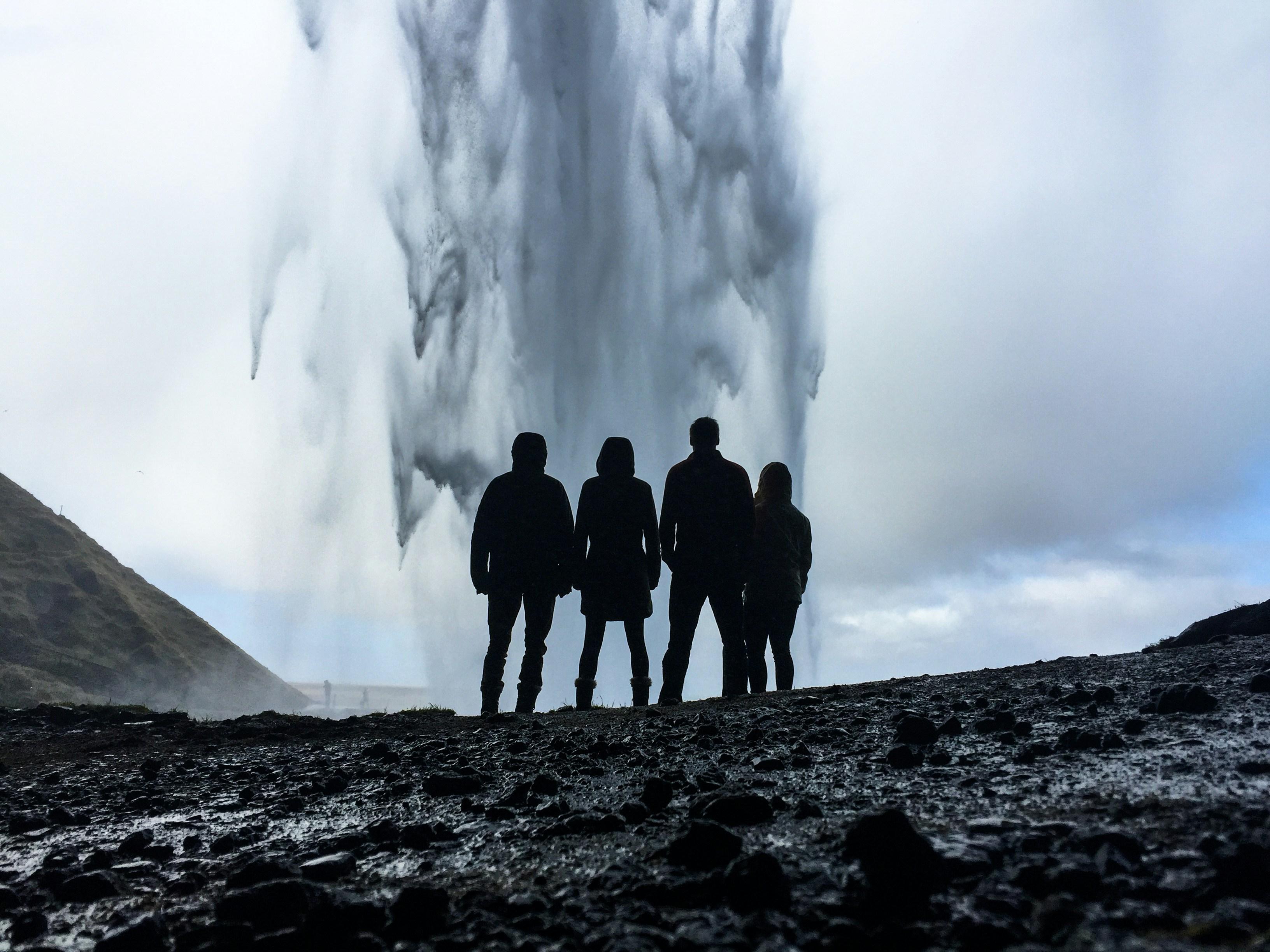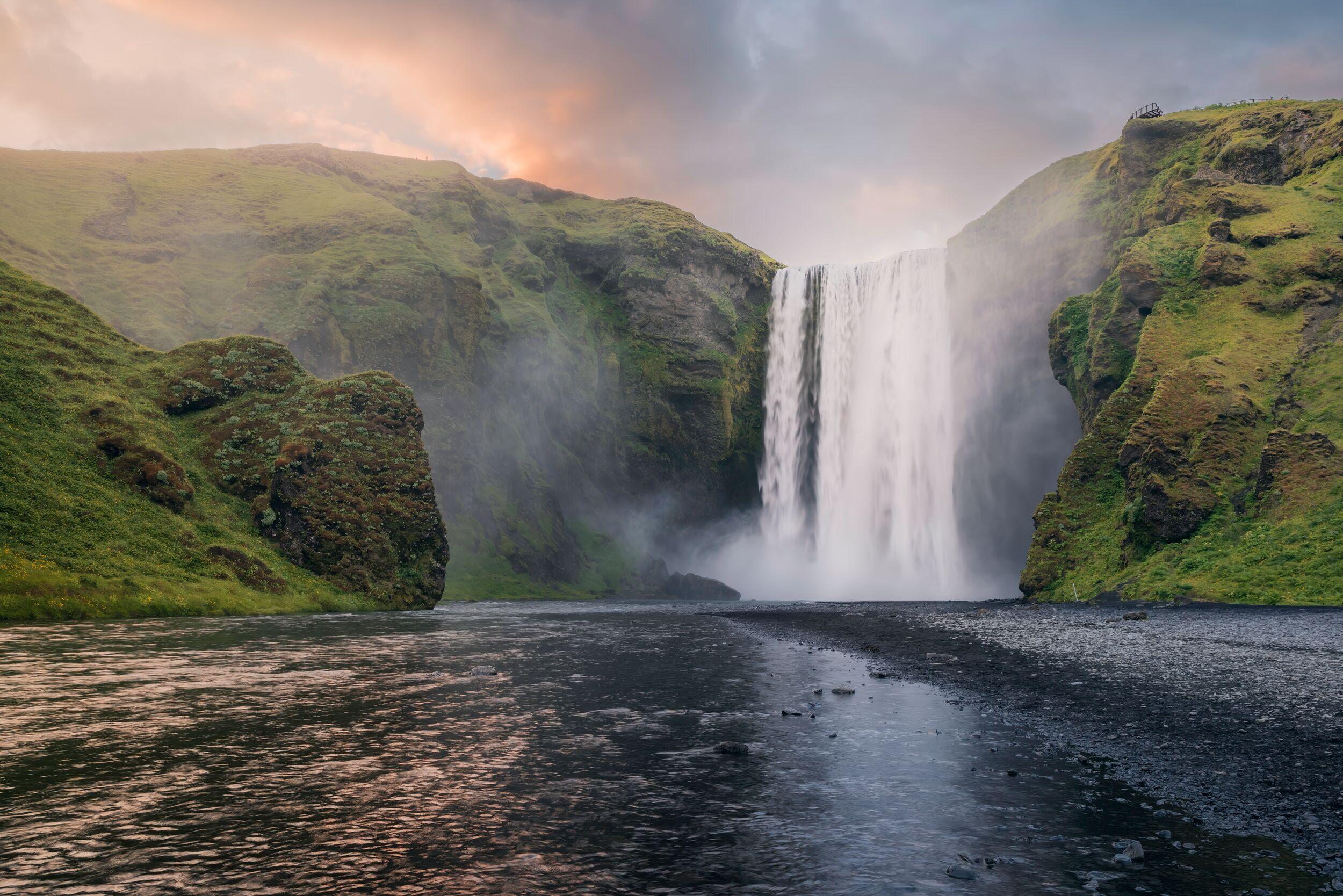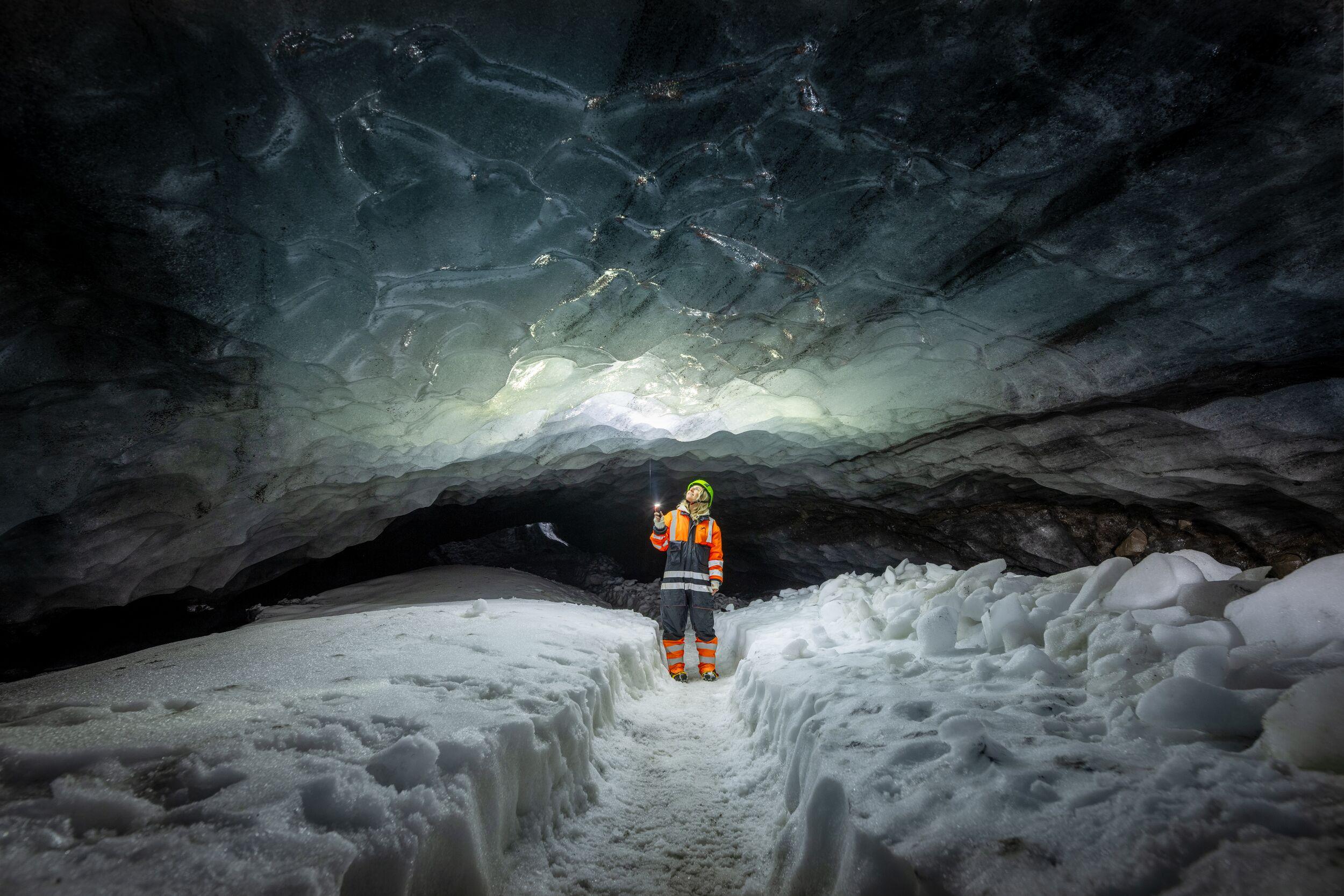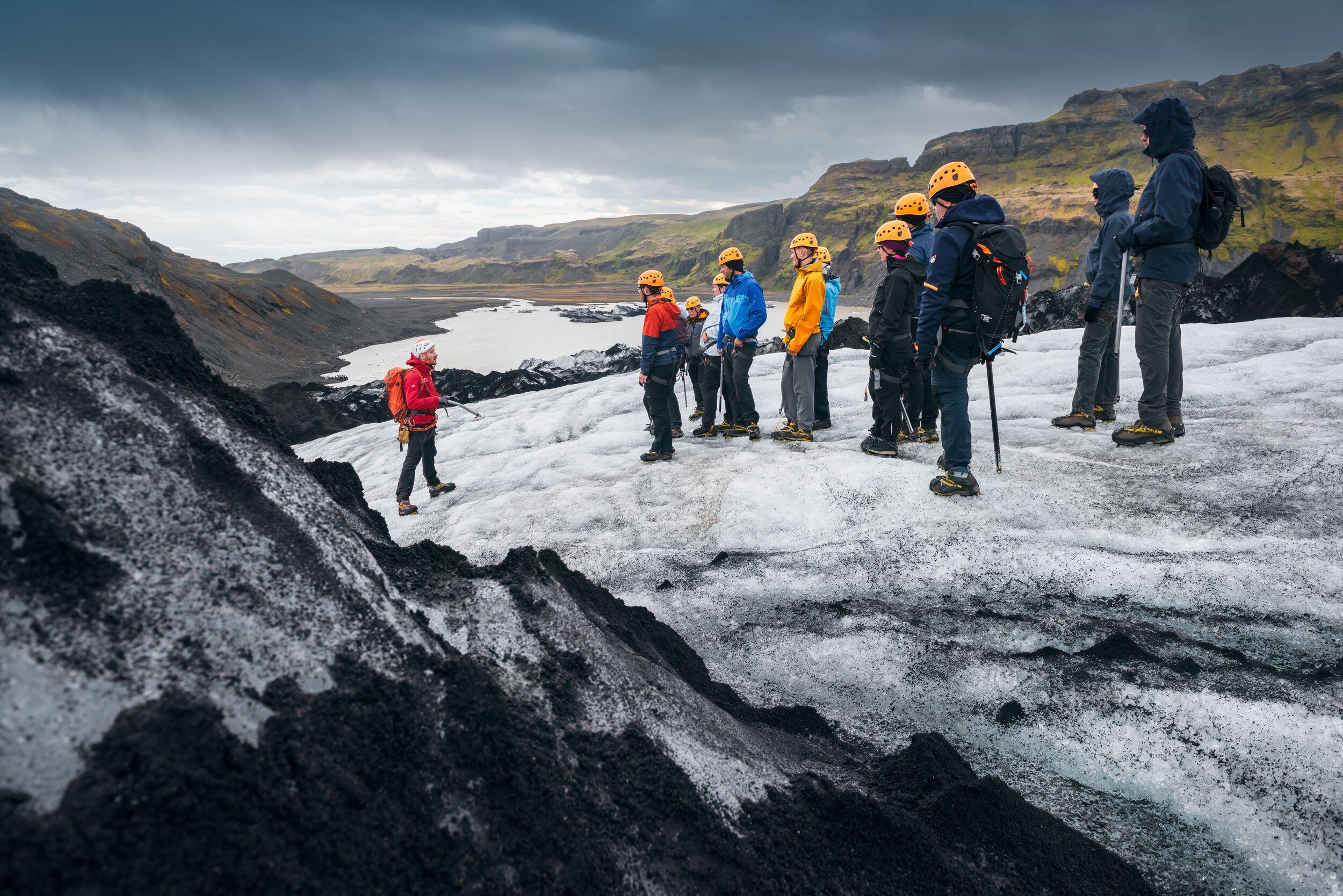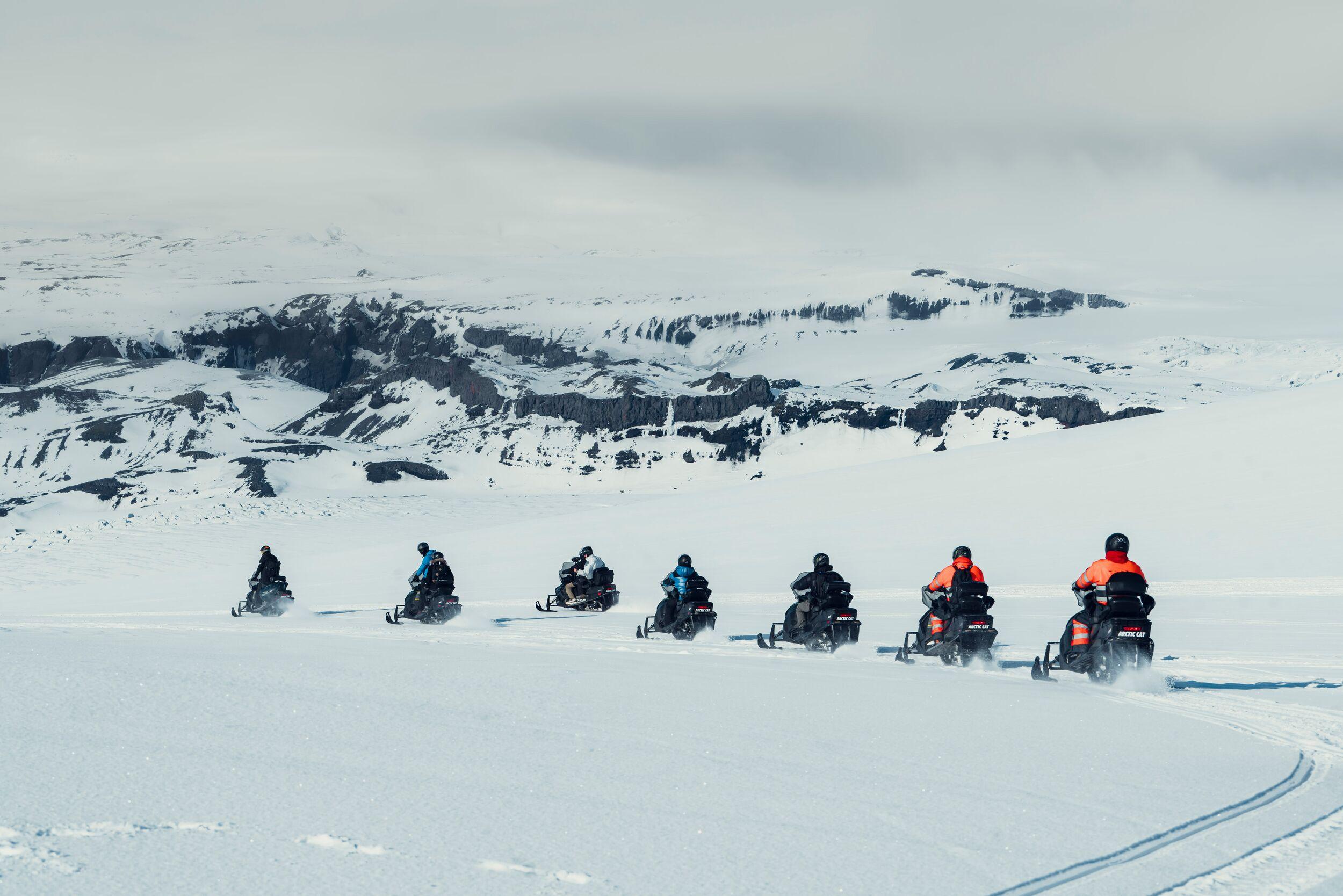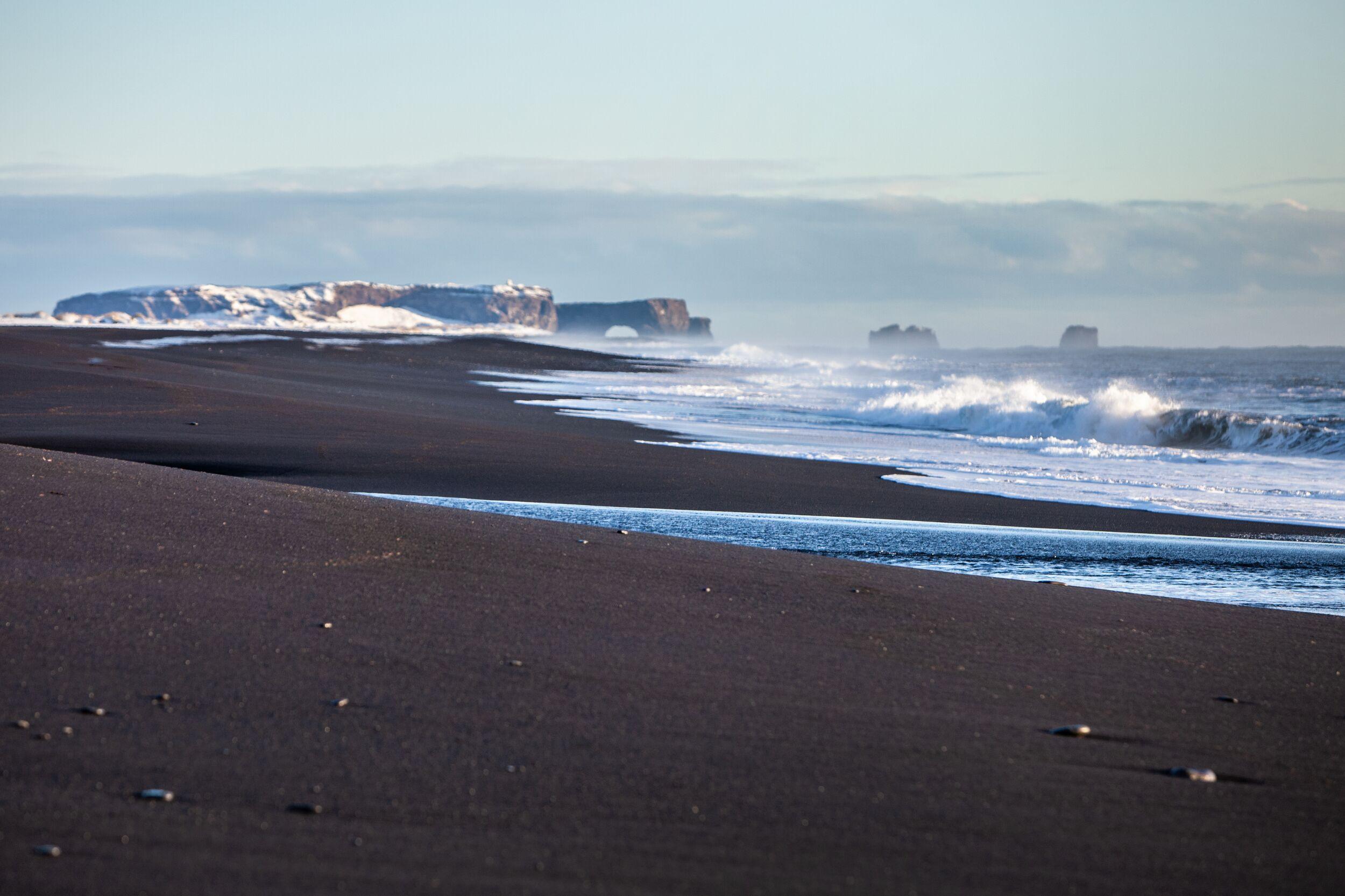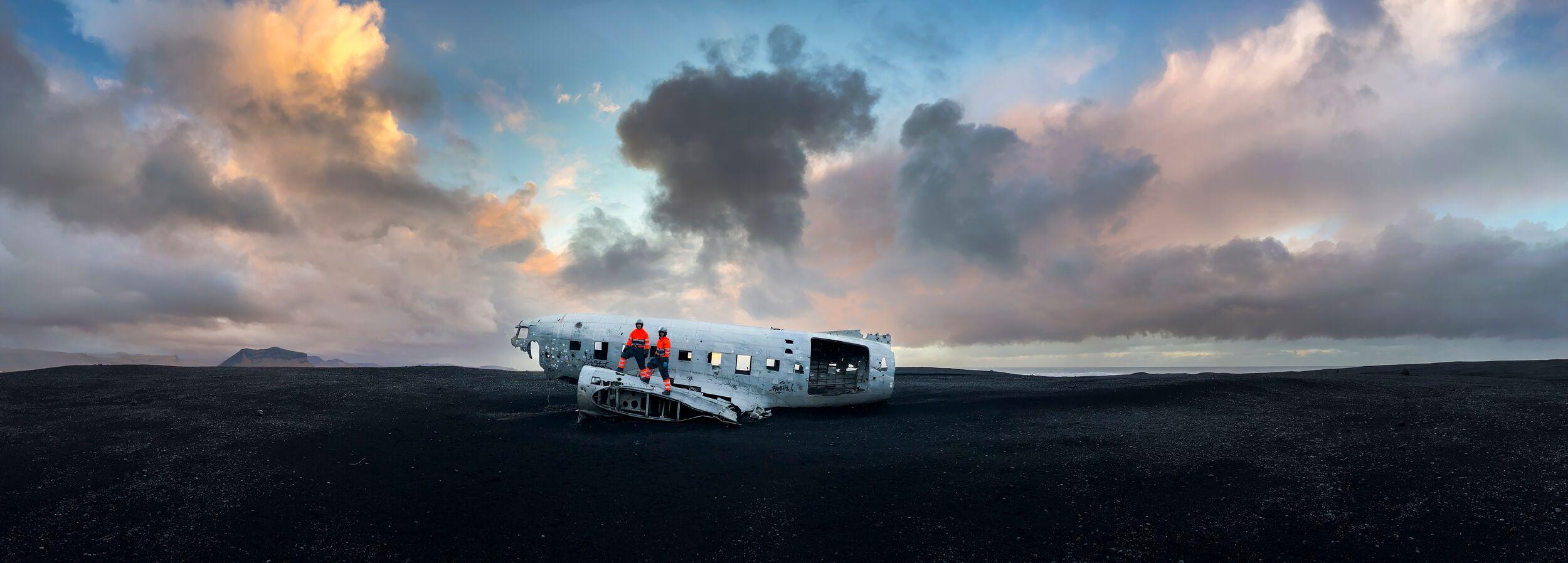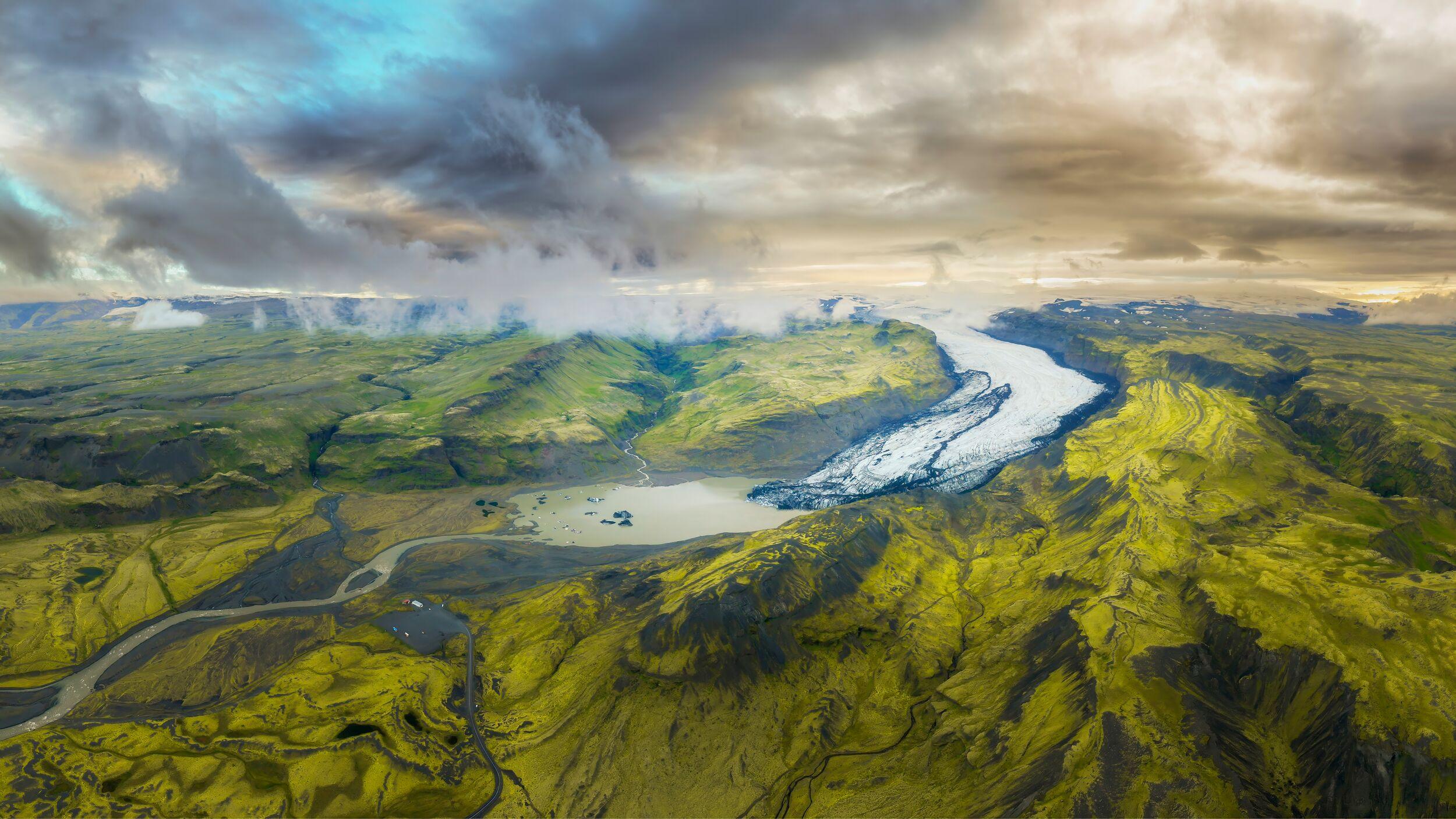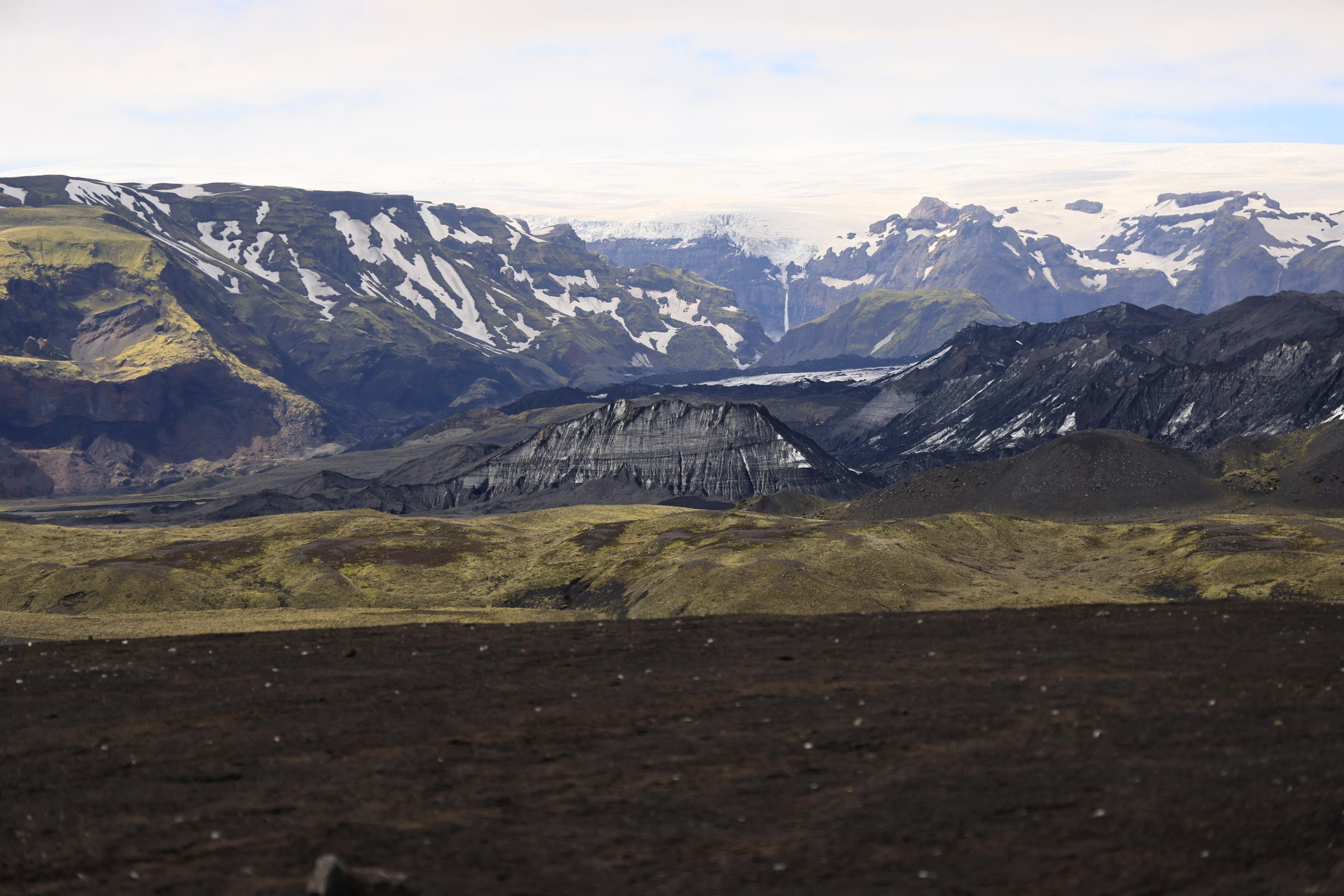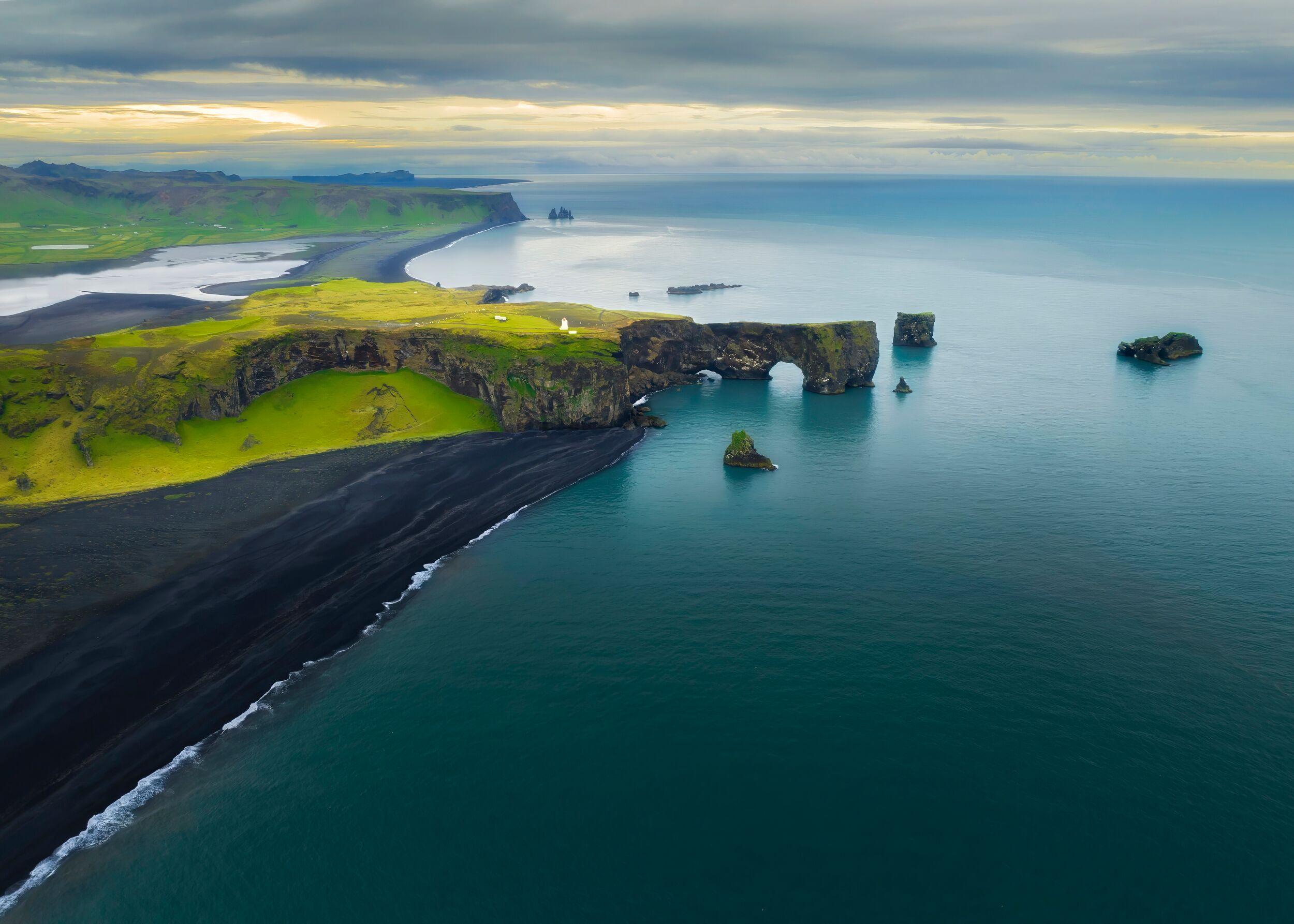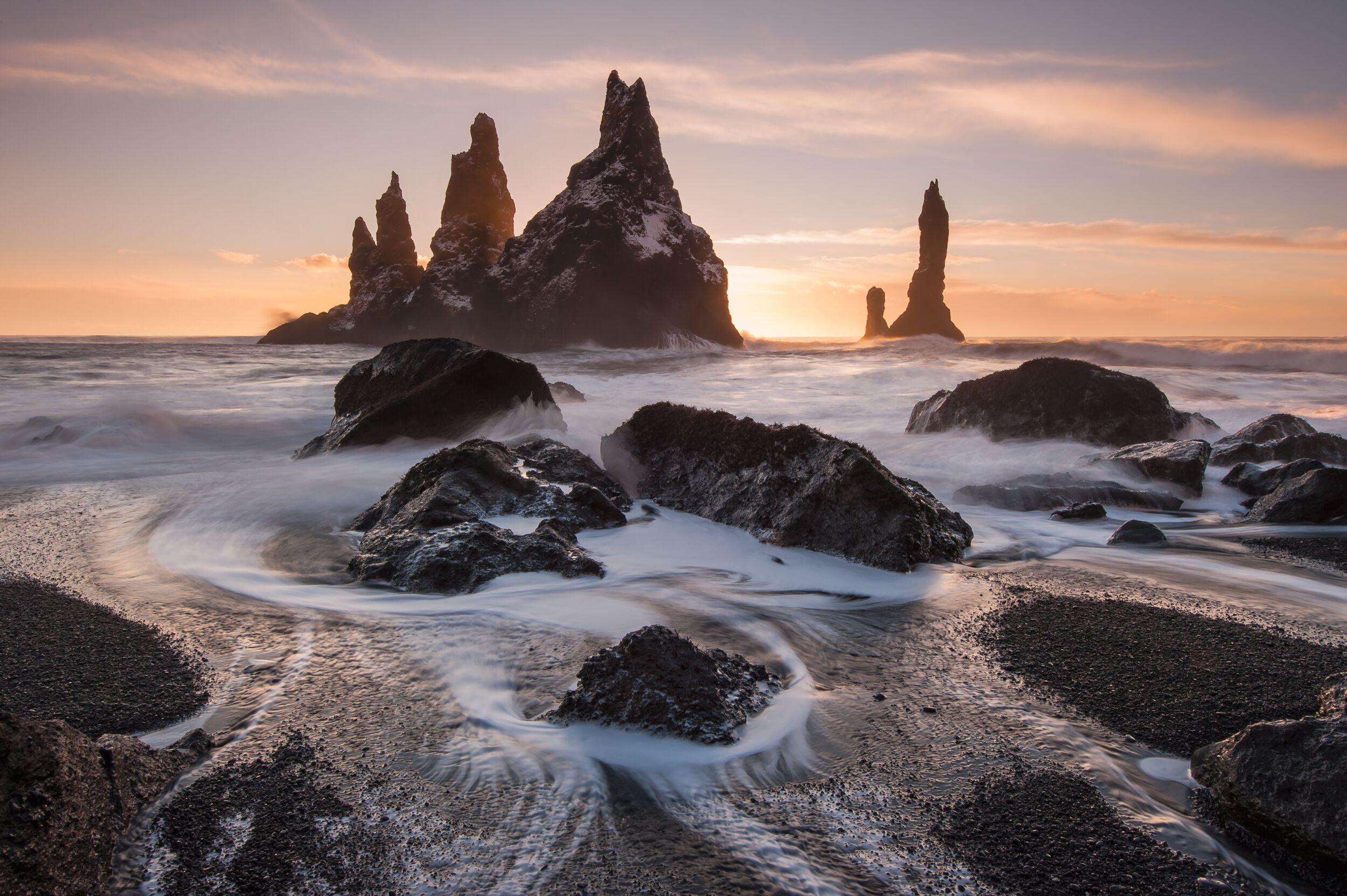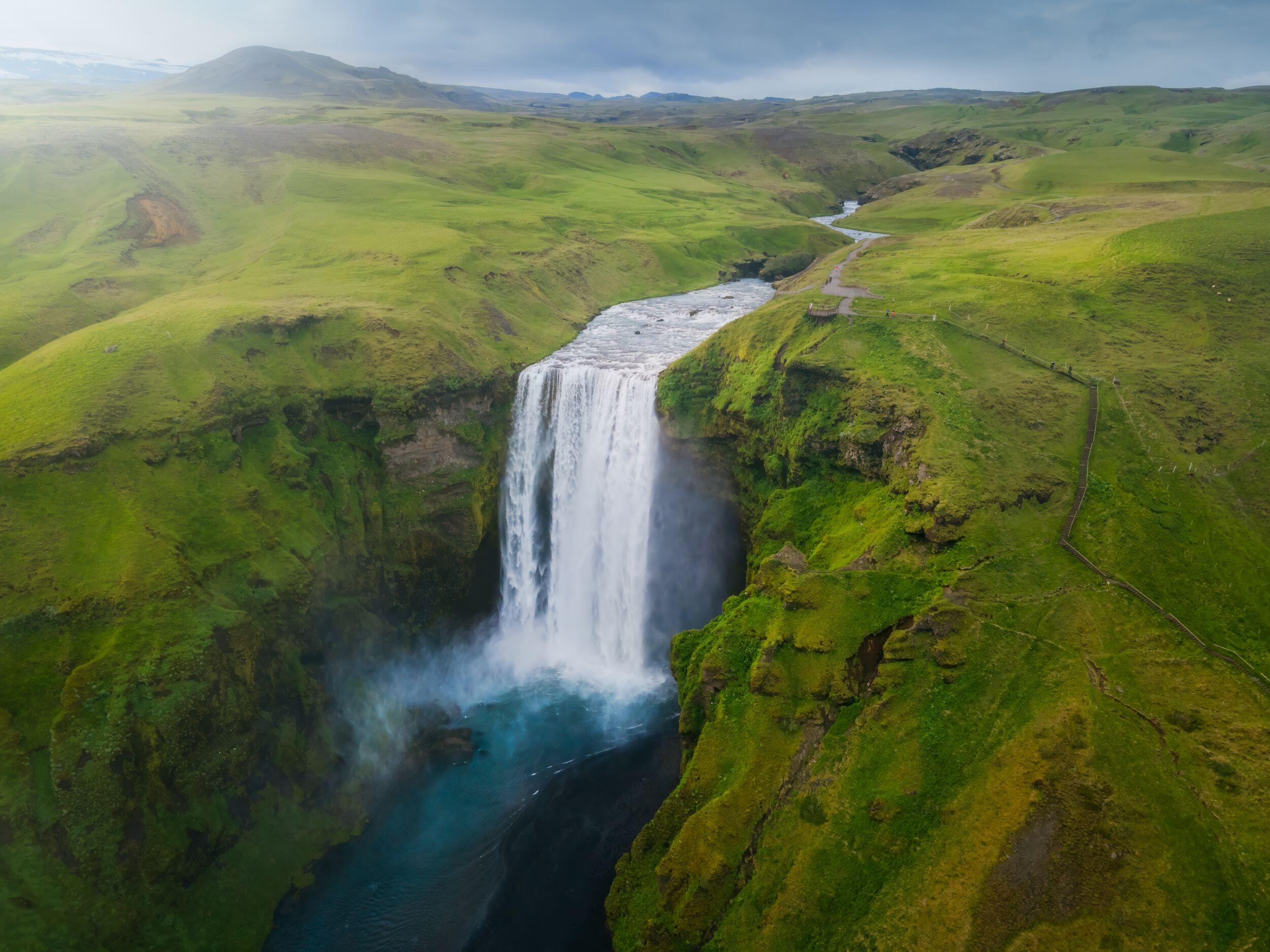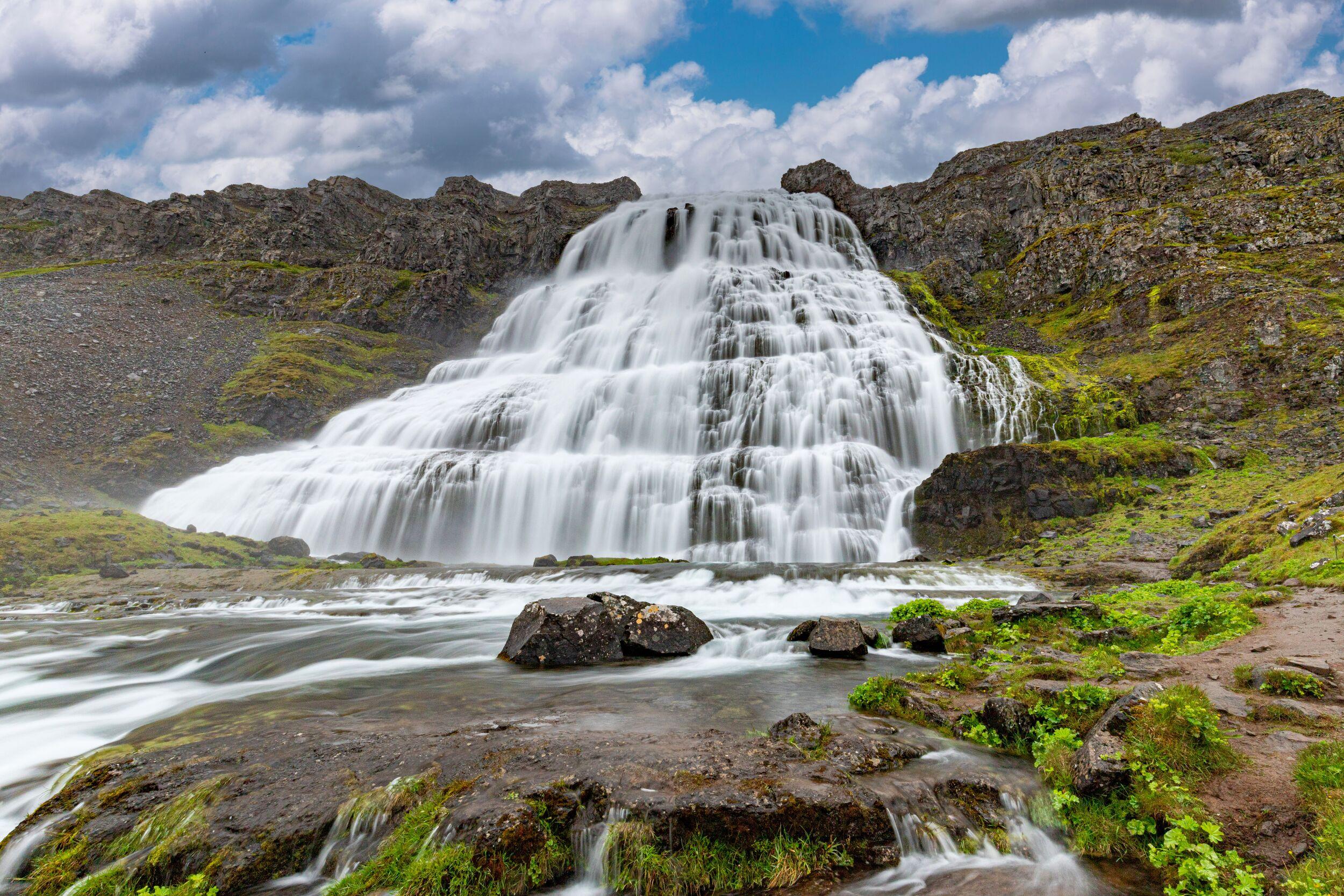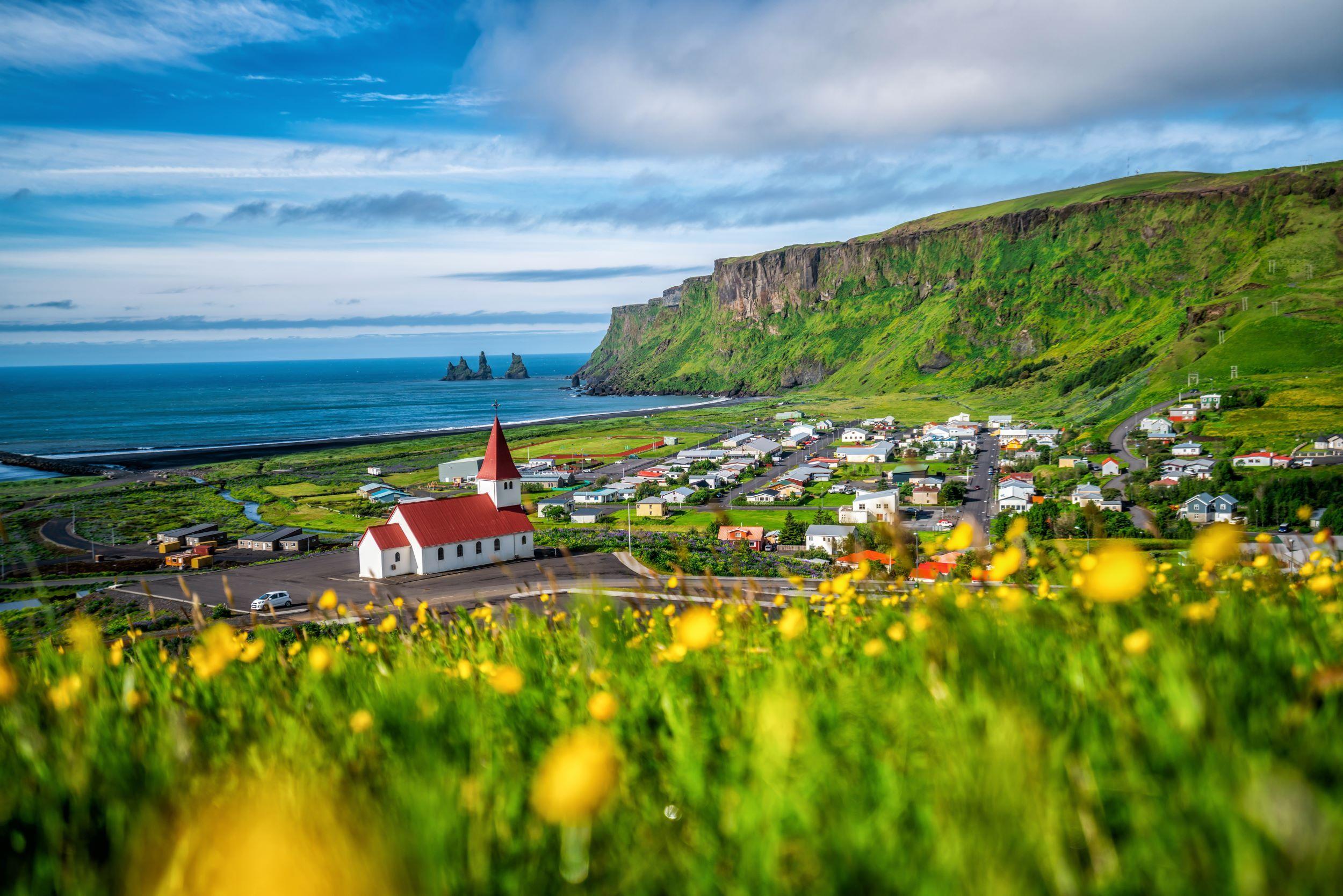Discover Seljalandsfoss Waterfall: Essential Tips for Your Iceland Adventure
There’s no official estimate of the exact number of waterfalls in Iceland. Some are remote and hard to access, while others are seasonal, appearing when there is heavy rain. Nevertheless there could be as many as 10,000 of them across the country. Each one is different, with its own characteristics. A few of them stand out in this very crowded field, because of their height, breadth, volume of water, geology or for some other reason.
Seljalandsfoss waterfall is one of them, a popular attraction on Iceland’s south coast, visible from the ring road. It’s one of the country’s most visited waterfalls, so let’s take a look at what makes it unique and offer some practical information to help you plan your visit.
What Makes Seljalandsfoss Special?
At first glance, approaching from Route 1, you could be forgiven for thinking that there’s nothing especially unique about Seljalandsfoss. But you’d be wrong! Like many Iceland waterfalls, it’s fairly tall, in this case about 60 metres high. It interrupts the flow of the river Seljalandsá, which then travels a short distance before joining the larger Markarfljót River. As the water hits the ground below, it has eroded a plunge pool named Kerið (the Tub), in which fish such as char and trout have been spotted.
Like nearby Skógafoss, it cascades over ancient sea cliffs that are now inland, having formed during the last Ice Age when the sea level in the area was much higher. The top layer of rock is lava, which overlays palagonite tuff and breccia. You can see the layers in the rock as you get closer to the waterfall. It’s an impressive sight from any angle; you’ll get a sense of its scale if you stand on the little wooden bridge in front of the waterfall and look back.
But the main reason travellers get excited about seeing Seljalandsfoss is that it’s possible to walk behind the curtain of water. It’s quite a rare thing to be able to do so – and it’s probably the only waterfall in Iceland where it’s possible. To stand and look through this curtain of water at the landscape beyond, particularly at sunset when the light is softened by the water, is a magical experience. Many travellers agree that this is one of the best waterfalls in Iceland.
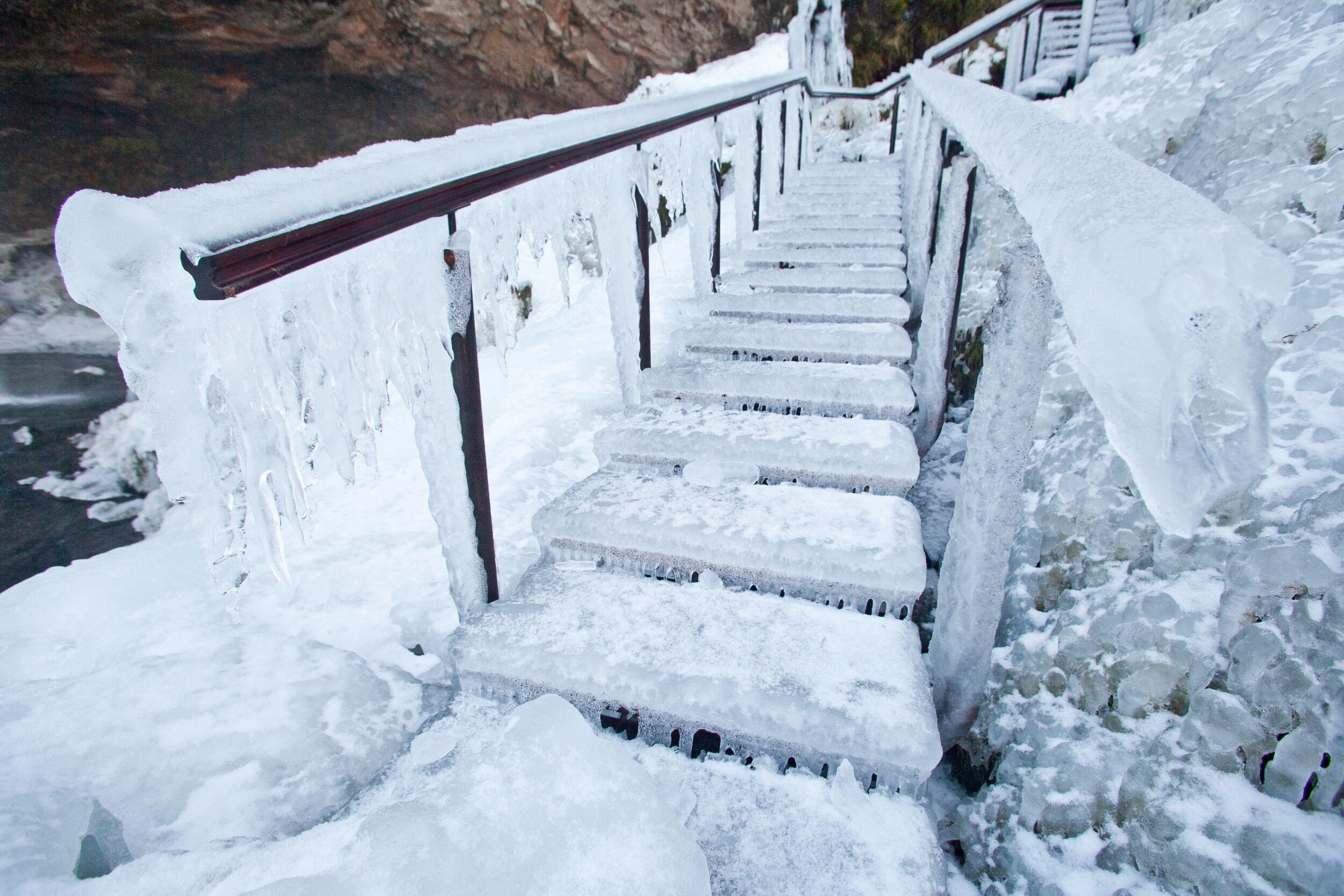
The trail behind the weterfall
One of the most popular features of Seljalandsfoss is the ability to walk behind the cascade, but it's important to note that this trail is closed during the colder winter months due to the risk of falling ice and slippery paths.
South Coast Attractions Found Near Seljalandsfoss
Located along Iceland’s South Coast, a region celebrated for its breathtaking scenery, Seljalandsfoss is just one of many unmissable natural wonders here. Another unmissable waterfall, this one called Gljúfrabúi, is located just a few hundred metres from Seljalandsfoss. Even though it’s hardly any distance from Seljalandsfoss it’s actually on a different river, the Gljúfurá River, which has a lower discharge than its neighbour. Sustained by a natural spring, its source is in Tröllagilsmýri (Troll Gorge Marsh) located within an area of heathland called Hamragarðaheiði.
Like Seljalandsfoss waterfall, Gljúfrabúi too is unusual, this time because it’s tucked away almost hidden from sight in a cleft in the rock. Bring rubber boots and waterproofs: here, it’s actually possible to squeeze through a narrow gap. Once inside, look up and you’ll see daylight – just be careful not to stand right under the waterfall or you’ll get absolutely soaking wet.
Gljúfrabúi is slightly shorter than its more visible partner, measuring about 40 metres from top to bottom. But as it’s confined to such a small space, blocked by a boulder called Franskanef, it is a powerful sight. There’s also a small cave behind it called Ömpuhellir, so it really is worth pulling off your shoes and braving the icy water to take a peek.
Seljalandsfoss is located about 130 km east of Reykjavik and to reach it from the capital typically takes between one and a half to two hours. It’s an easy – and scenic – drive on a good tarmac road: the country’s ring road. As you approach from the west, the waterfall will be visible to your left. The turnoff for the ferry over to the Westman Islands is nearby, while Skógafoss waterfall is another 20 minutes or so further on.
The South Coast is home to Iceland's most dramatic landscapes and features some of its most popular natural attractions.
How to Access Seljalandsfoss
Sightseeing tours of the South Coast all stop at Seljalandsfoss as it’s one of the major attractions of this region of Iceland. They vary in scope; some continue as far as Vik while others carry on to Jökulsárlón Glacier Lagoon. You’ll be given a specified amount of free time which is enough to get a close up look at the waterfall, take some photos and explore your nearby surroundings.
If you’re self-driving, a sizeable car park is located close to the waterfall. It operates on a pay and display basis (currently the fee is 800 ISK), with the proceeds helping with the maintenance costs of this busy site. Once you’ve found a space you place the ticket clearly on the dash and can then go off and explore – it’s good for the whole day should you wish, though most people stay only an hour or so. (There are toilets, a small gift shop and a food truck, but no other major facilities.) The waterfall itself is free.
Hiking near Seljalandsfoss is easy, both at the waterfall and following the short trail to Gljúfrabúi. Visitors follow a short trail which snakes towards the waterfall and then runs underneath the overhang where the falling water has undercut the rock. The path’s a little uneven and can be slippery when it’s very wet or icy, but most travellers will be able to access it if they are careful. Walking behind Seljalandsfoss is a very cool thing to do, so don’t expect to have this part of the trail to yourself.
What to Wear and Bring to Seljalandsfoss
It’s a good idea to be wearing boots with ankle support and thick treads so you have plenty of grip. You’ll also appreciate pulling on a waterproof jacket to keep out the worst of the spray. The cliff helps protect you against the wind when you’re close to the waterfall, but in more exposed parts of the site you’ll be grateful for a hat and gloves on a chilly day. In winter, though the waterfall doesn’t freeze, icicles can form on the rock; snow and ice collect on the path. It’s beautiful, but take extra care not to slip in such conditions.
Preparing to visit Gljúfrabúi takes a little more thought. It will certainly be useful to have a towel in your bag so that you can dry your feet (and perhaps your face and head) afterwards. You might also consider packing a spare pair of socks and a change of shoes, just in case, particularly if you are on a full day tour, as this is an early stop.
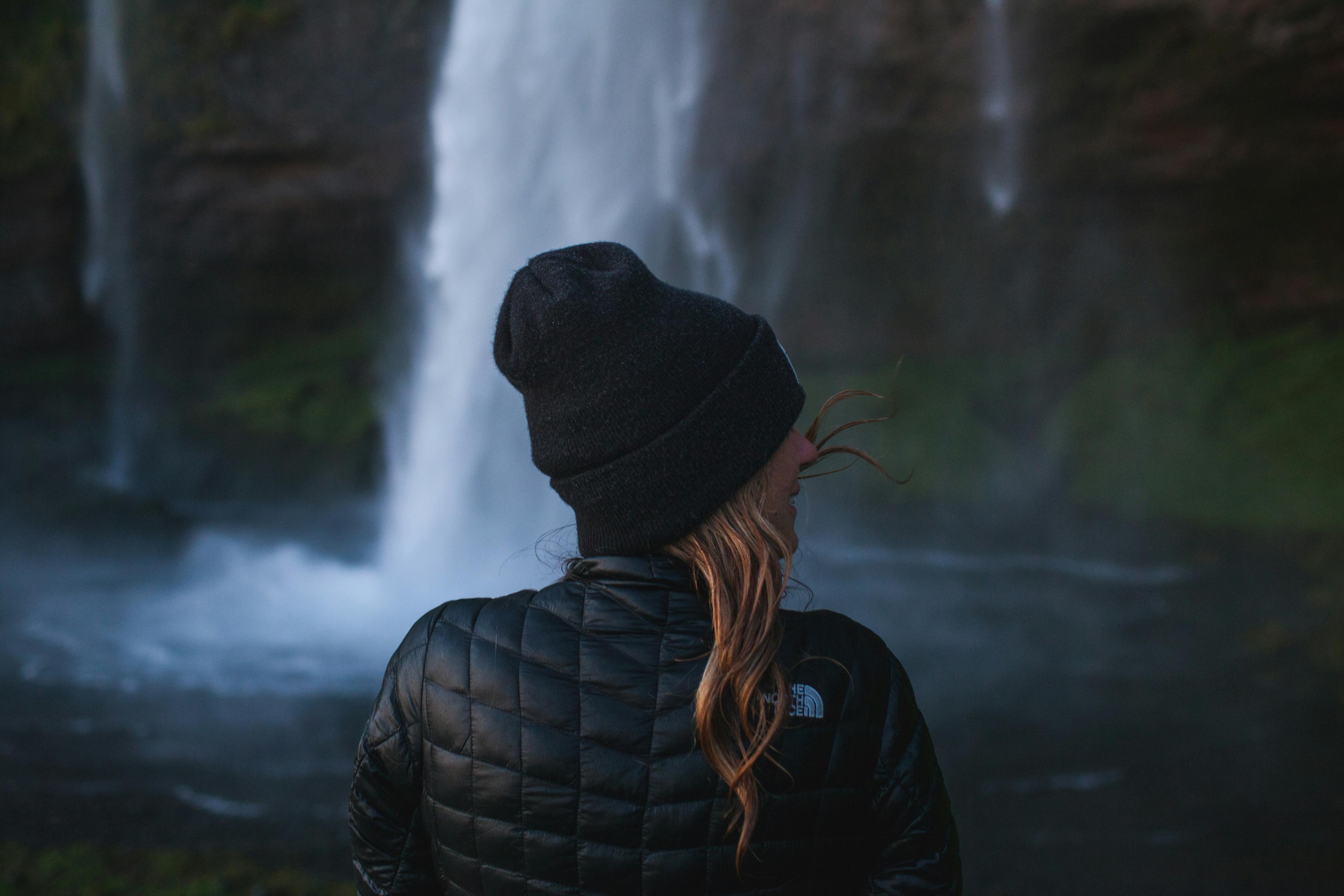
If you plan to walk behind the waterfall, be prepared for a thorough soaking!
Tips for Photographing the Waterfall
One of the main things you need to think about if you plan to photograph Seljalandsfoss waterfall is how you’re going to keep your camera lens dry. While it’s unlikely you’ll need a waterproof cover, a small towel might come in handy to wipe off the water droplets. Aside from the spray, there are a number of other considerations.
This place gets busy, especially in summer. If you’re keen to get shots of the waterfall without lots of people in them, you’ll have to make an effort to be here very early or late in the day (or be very skilled at photo-shopping them out!) On a fine day, the place is likely to attract more photographers as a shot of the setting sun through the curtain of water is highly sought after.
Whether you’re a pro snapper or not, one thing’s certain, you won’t want to miss out on seeing Seljalandsfoss waterfall. Why not start researching which of our south coast tours will suit you best?
Seljalandsfoss offers a truly magical experience, especially around sunrise and sunset when the light shines directly through the cascading water, illuminating the falls with a golden glow.
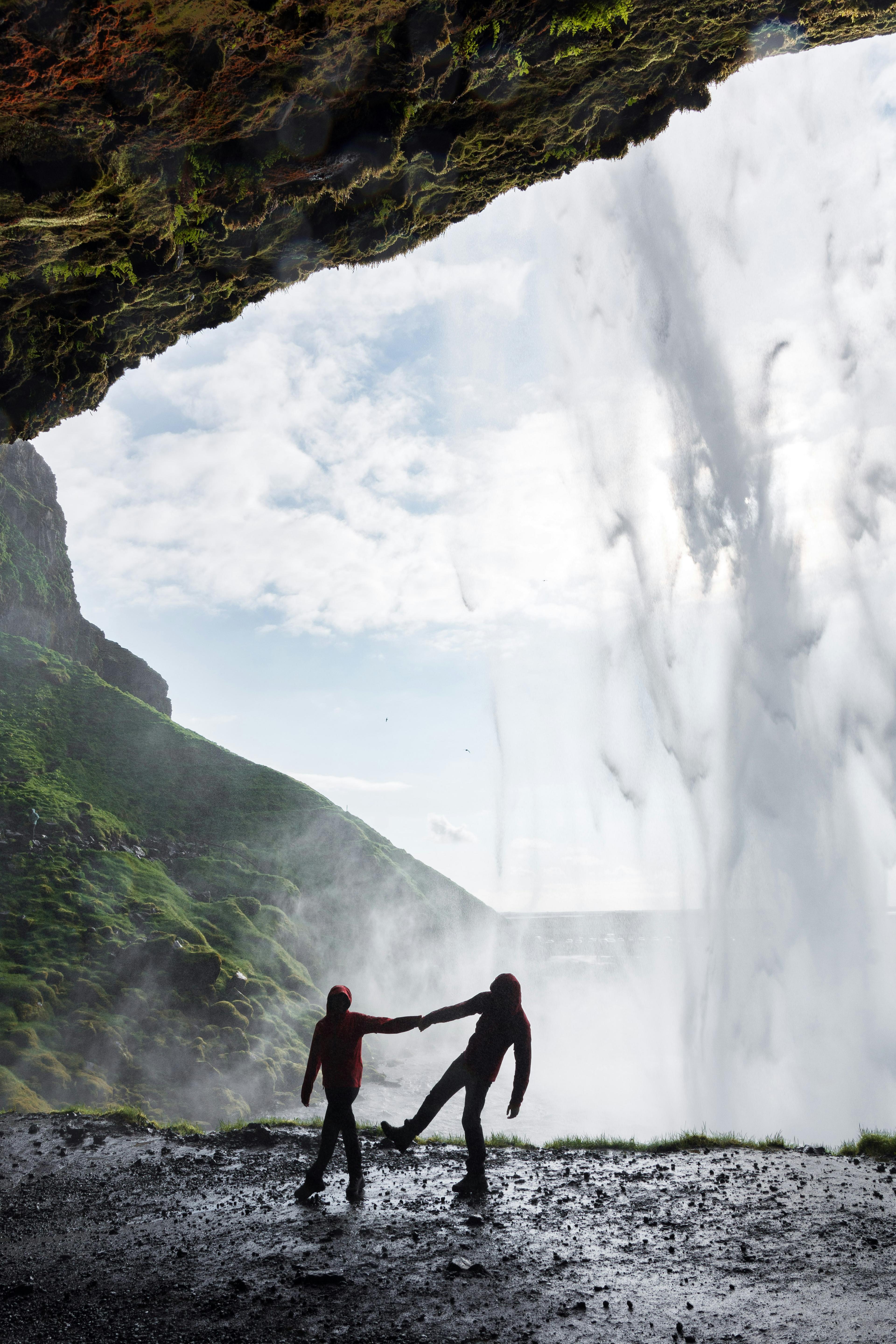
Questions and Answers about Seljalandsfoss
Because it sits along the south coast, where you’ll find loads of other natural wonders, it is definitely worth a stop at Seljalandsfoss. The towering waterfall is a beautiful sight in itself, but because it is the only waterfall in Iceland where you can walk behind the water, it is also a unique sight.
Seljalandsfoss waterfall is 129 kilometres (around 166 miles) from Reykjavík. If you’re embarking on a Seljalandsfoss waterfall self-drive adventure, it takes around two hours to get here by car.
Seljalandsfoss is one of the few waterfalls in the world you can walk behind and the only one in Iceland that allows you behind the curtain of white water cascading over the cliffs.
The path to reach the back of the waterfall is easy to follow but can be slippery. From behind the waterfall, you can see Iceland’s mossy-green landscape.
From Reykjavík, you follow the Route One main road out of the city and along the south coast. You can see Seljalandsfoss waterfall from the road, so you won’t miss it.
There is a dedicated car park a short walk away from the falls themselves. Although it is easy to navigate to Seljalandsfoss from Reykjavík, road conditions in the colder months can be challenging so many visitors to Iceland opt for a guided day tour along the south coast wonders, which includes a stop at the waterfall.
On organised Seljalandsfoss tours, an experienced and professional driver and guide navigates for you and provides a little context to the sights along the way.
Seljalandsfoss waterfall is one of the majestic wonders of Iceland’s south coast, and it sits just off the Route One ring road that loops around the entire island. It is a part of the Seljalandsá River which is formed by glacial meltwater from the famous Eyjafjallajökull ice cap.
On organised tours and self-drive days out, visitors to Seljalandsfoss tend to spend around 30-60 minutes at the waterfall.
This includes the short walk from the car park to the falls andthe walk behind the cascade if the weather is not too bad and the trail is not too slippery.
Most people stop here to stretch their legs, take in the unique Icelandic scene and snap a few photographs before heading off to the other natural wonders along the south coast.
The powerful flow of water over Seljalandsfoss means that it does not freeze in winter. Parts of the river may freeze around it and you can often spot spiky icicles in the coldest months, but the water keeps flowing over the cliffs even in the deepest, coldest winter. Seljalandsfoss, with a backdrop of snow, is a sight to behold in winter.
It is pronounced sal-ya-lands-foss and the meaning of the name is a bit of a mystery. It would roughly translates into English as “seller of the land of waterfalls” which doesn’t make much sense, but there we go.
In terms of time of year, the best time to visit Seljalandsfoss is in the shoulder season – in April, May or September. During these months, the crowds of summer have dissipated but you can still take advantage of relatively long hours of daylight.
These months are also known as the time of “the long shadows” in Iceland as the landscape is bathed in a sepia-toned light throughout the day. This is the best time of year for photography in Iceland.
There is no fee to visit Seljalandsfoss waterfall as it is on public land. There is, however, a small parking fee to use the car park. The fee to park is 800 ISK (about $5), and there is no time limit to how long you can park.
The spray of Seljalandsfoss waterfall is pretty powerful, so if you are getting close to admire this natural wonder, you will definitely want to dress in waterproof clothing. If you plan to walk behind the waterfall, plan to get wet.
Waterproof boots, a waterproof jacket and even waterproof trousers are a good idea. If you’re going to bring woolly hats, scarves and gloves on your south coast adventure, it might be an idea to leave them in the car or bus as you visit Seljalandsfoss (unless it is really cold) as wool takes a long time to dry off.
The best time of day to visit the waterfall depends on what time of year it is. Keen photographers like to catch the falls in the golden light of near-sunset.
So, during the summer, this is between 8 pm and 11 pm and in the winter, it is any time throughout the day as the sun hovers low to the horizon from 9 am to 4 pm. If you want to avoid the main crowds of the day, it is best to visit early in the morning or late in the evening.
Seljalandsfoss waterfall’s height is around the same as its south coast counterpart, Skógafoss. Both waterfalls stand at 60 metres tall (197 feet), so the splash from the cascade is rather powerful. As the water hits the plunge pool from so high up, water spray can reach the viewing point and path behind the waterfall, so be prepared to get wet when you visit.
Nearby Attractions
Recommended tours
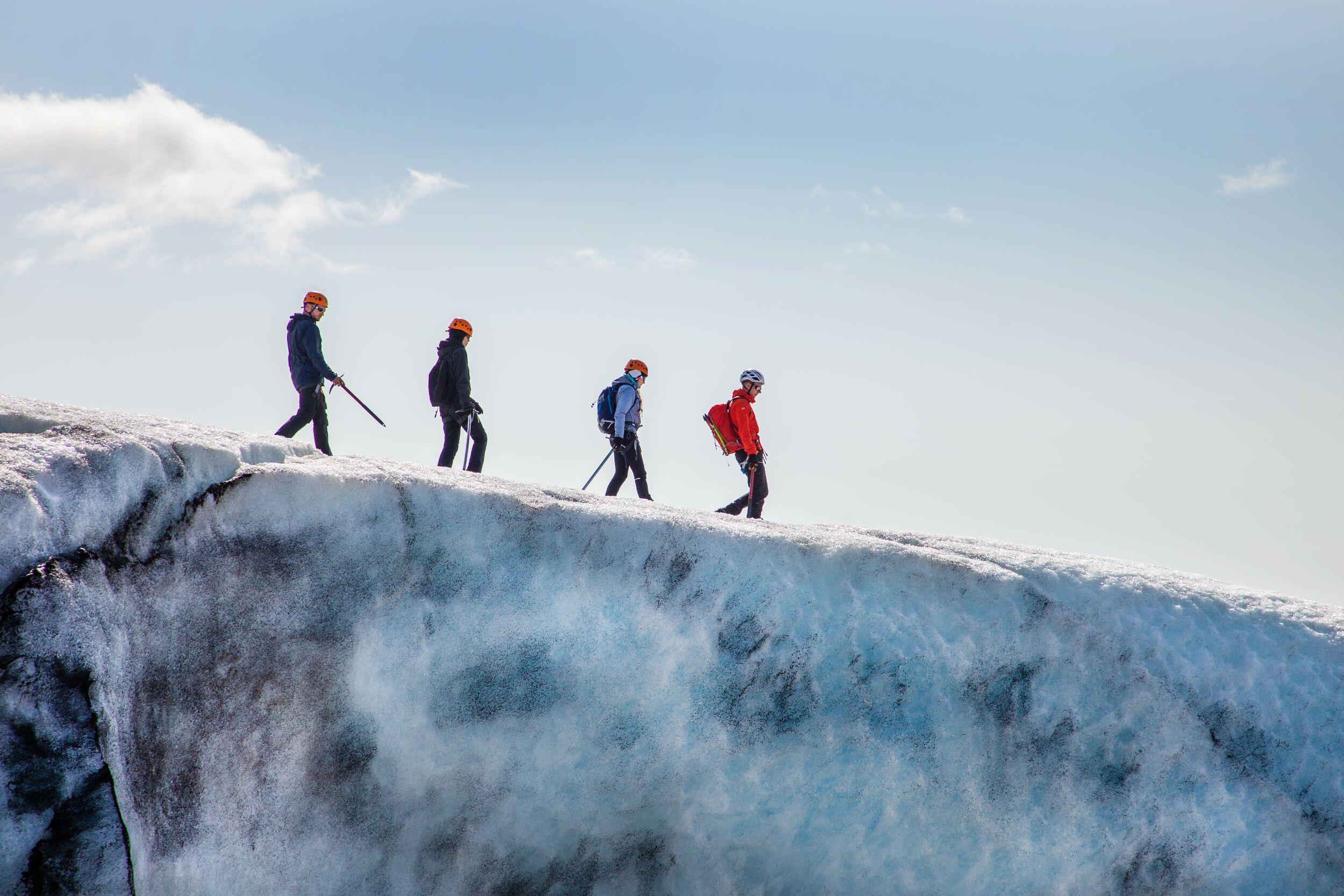
South Coast & Glacier Hiking
Experience Iceland’s dramatic south coast and its iconic natural wonders on this unforgettable adventure. Travel from Reykjavík and journey through stunning landscapes, with memorable stops at some of Iceland’s most beloved waterfalls.
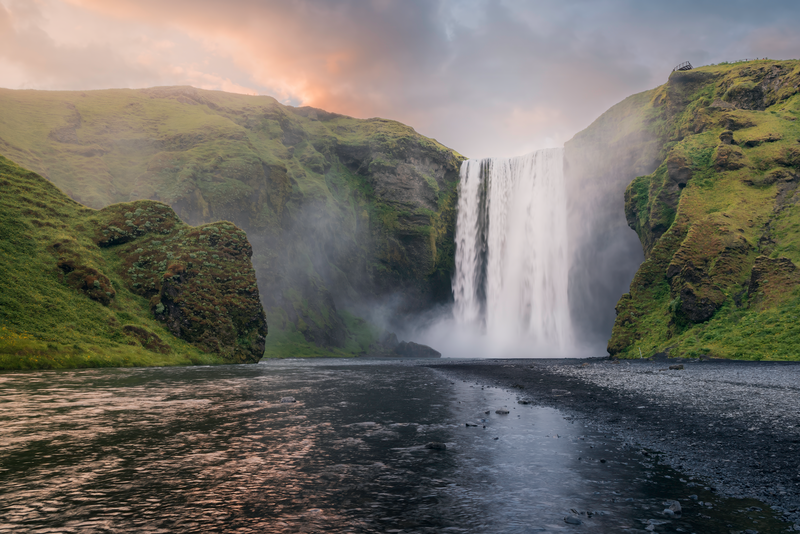
South Coast Wonders
This carbon-neutral Iceland South Coast tour is perfect for nature lovers looking to explore Iceland’s top natural attractions in just one day. Visit the stunning Seljalandsfoss and Skógafoss waterfalls, walk along the famous Reynisfjara black sand beach, see the breathtaking Sólheimajökull glacier, and experience the charm of Vík village—and enjoy incredible landscapes along the way.
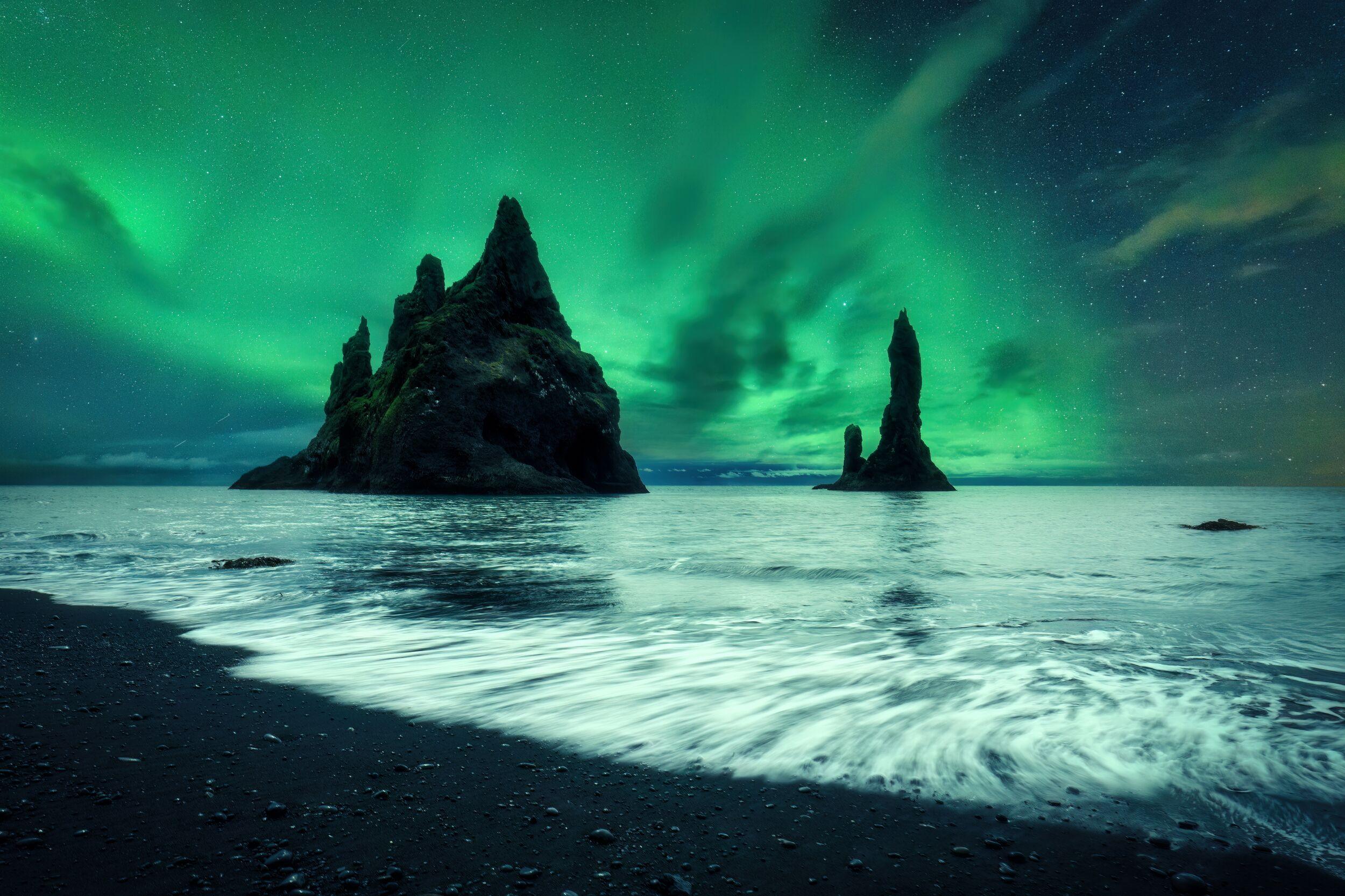
South Coast & Northern Lights - Combo Deal
A Carbon-Neutral sightseeing tour to Iceland's most iconic region. Visit Seljalandsfoss, Skógafoss, Reynisfjara black sand beach, and Vk village and the northern lights on this amazing combo tour.
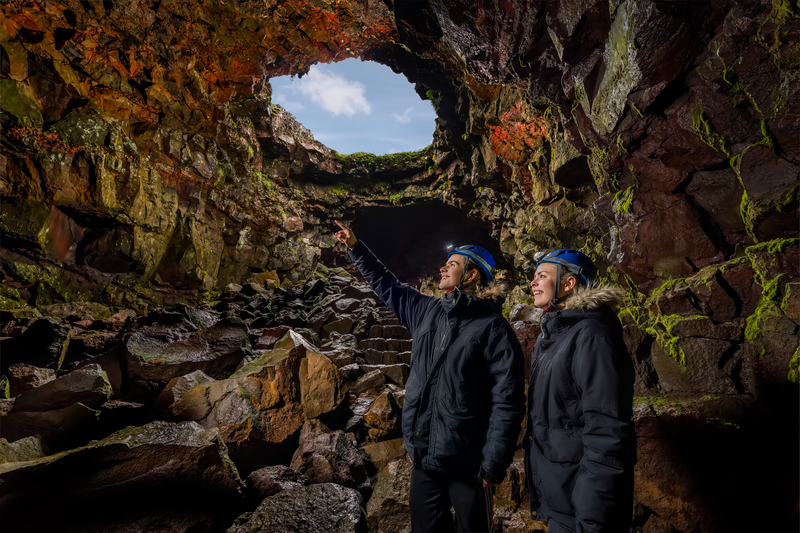
- Multiday Tour
Iceland On a Budget - 7 days
Explore Iceland’s breathtaking landscapes, geothermal hot springs, and volcanic wonders on this 7-day (6 nights) Iceland on a Budget package. See the geysers and waterfalls of the Golden Circle, marvel at the black sand beaches of the South Coast, and discover Reykjavík’s cultural landmarks with a Hop-On Hop-Off city pass. Relax in the serene geothermal pools of Hvammsvík and step inside a real lava tunnel, where you’ll walk through Iceland’s volcanic history. With affordable travel, carbon-neutral transfers, and expert local guides, this package provides a budget-friendly way to experience Iceland’s best sights.
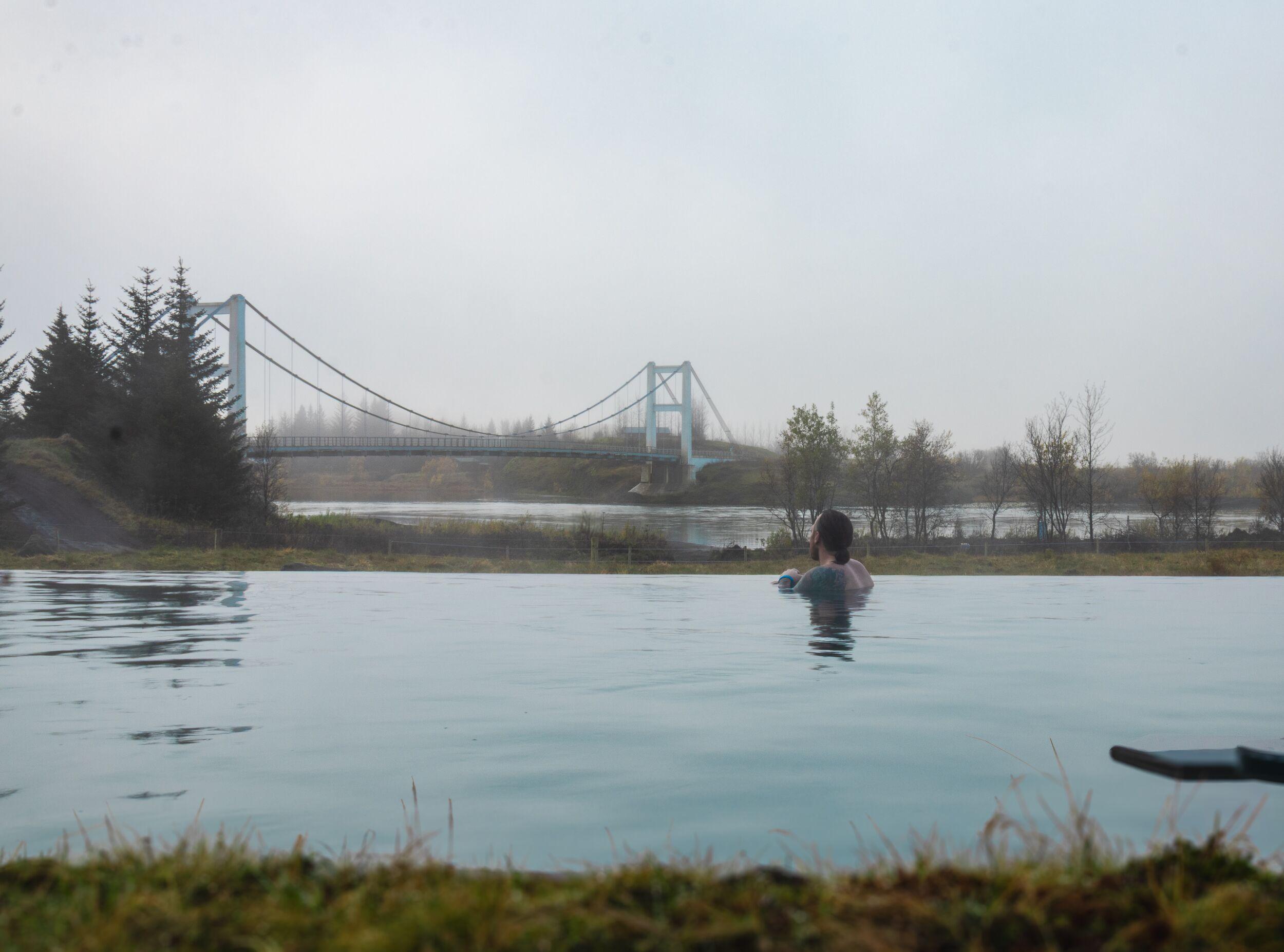
Golden Circle and Laugarás Lagoon Birki Admission
Begin your adventure with a journey through the iconic Golden Circle, where you'll discover three of the country’s most breathtaking natural wonders: Gullfoss waterfall, the erupting hot springs of Geysir, and the historic rift valley of Þingvellir National Park. End your day of wonders with a relaxing soak in the geothermal waters of Laugarás Lagoon, a tranquil new spa in the Icelandic countryside.
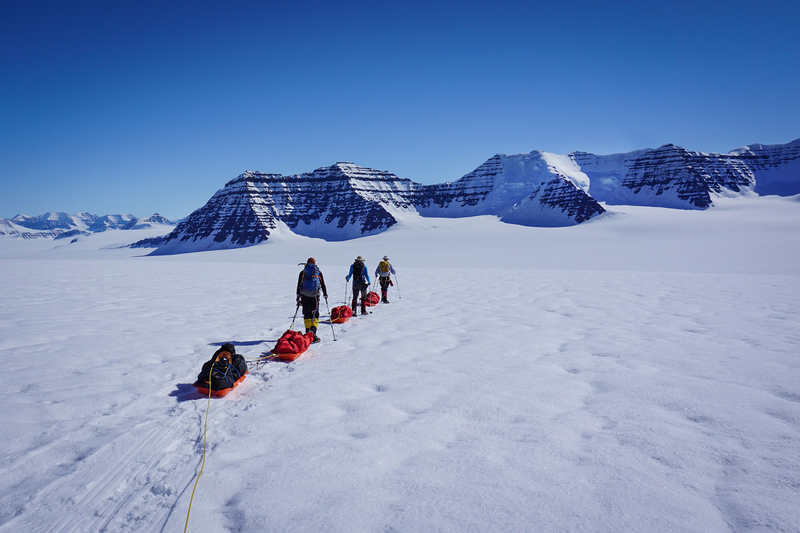
Mt Gunnbjörn, the Highest Peak in Greenland
Are you dreaming of an Arctic adventure of a lifetime? This 5-day tour has you scaling the highest peak of the Arctic (3694 m/12120 ft). Mt. Gunnbjörn has been called the 8th continental peak due to its massive size, and it beckons climbers from around the world. On the east coast, where towering mountains rise from the Greenland icecap, the conditions are pristine and similar to those in Antarctica. There’s nothing quite like challenging yourself to climb in one of the most isolated areas of the north, with the fresh Arctic air and stark white snow. An experienced and qualified guide will lead the group, keeping participants safe and informed. This is not a trek for a beginner as the hike is considered strenuous, and participants should have mountain climbing experience and be prepared to camp for four nights. Mt. Gunnbjörn is easily accessible on a ski plane from Iceland. Once in the Watkins Mountains, we set up a comfortable base camp at the foot of the mountain. To make the summit day more manageable, we establish one camp on the way to the summit. The climb can be done on snowshoes, with the last part done on crampons.


